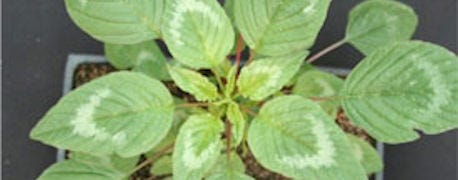January 6, 2015

The Weed Science Society of America recently issued a report to uproot common misconceptions about "super weeds". The catch-all term is extensively used by news media, anti-GMOers, even the Oxford Dictionary to describe herbicide-resistant weeds.
The truth behind two widespread fallacies was tackled by Brad Hanson and Andrew Kniss, Extension weed specialist at University of California, Davis and University of Wyoming agronomist, respectively.
Fallacy 1: Super weeds are a product of rampant gene transfer from genetically-modified field crops.

Scientists debunk 'super weed' myths
The truth: Gene transfer from some crops to certain weed species can happen, but hasn't been a factor in the development of herbicide resistance across large acreages. The true culprit is overreliance on a single class of herbicides. It results in natural selection for weeds that can survive.
"Resistance to pesticides is not new or unique to weeds," adds Hanson. "Overuse of any compound class, whether antibiotic, antimicrobial, insecticide, fungicide or herbicide, has the potential to lead to reduced effectiveness."
Weeds resistant to herbicides were first reported more than 50 years ago. But integrated weed management strategies including more tillage, more hand weeding and multiple herbicides kept them in check to a large degree.
Today, however, it's become common in some cropping systems for farmers to repeatedly use a single class of herbicides to the exclusion of other weed control methods. That has led to the growing problem with herbicide-resistant weeds.
Fallacy 2: Super weeds have supercharged abilities to muscle out competing plants in new, more aggressive ways.
The truth: Bully-like weed behavior isn't new, contend these weed experts. But resistant weeds are no more competitive or ecologically damaging than their non-resistant relatives.
Herbicide-resistant or not, all weeds can outcompete other more desirable plants for water, nutrients, sunlight and space. They grow by leaps and bounds and can be prolific seed producers. A single Palmer amaranth plant, for example, can produce hundreds of thousands of seeds.
The key is adopting effective management strategies. "It's important to incorporate a variety of weed management practices and not rely exclusively on herbicides for weed control," says Kniss.
Monitoring weed populations is important. Early recognition of resistant populations and rapid intervention can help reduce their impact."
The full WSSA paper on super weeds is posted online at http://wssa.net/weed/wssa-fact-sheets . The same website contains a variety of best management practices recommended by WSSA to combat herbicide resistance.
You May Also Like




